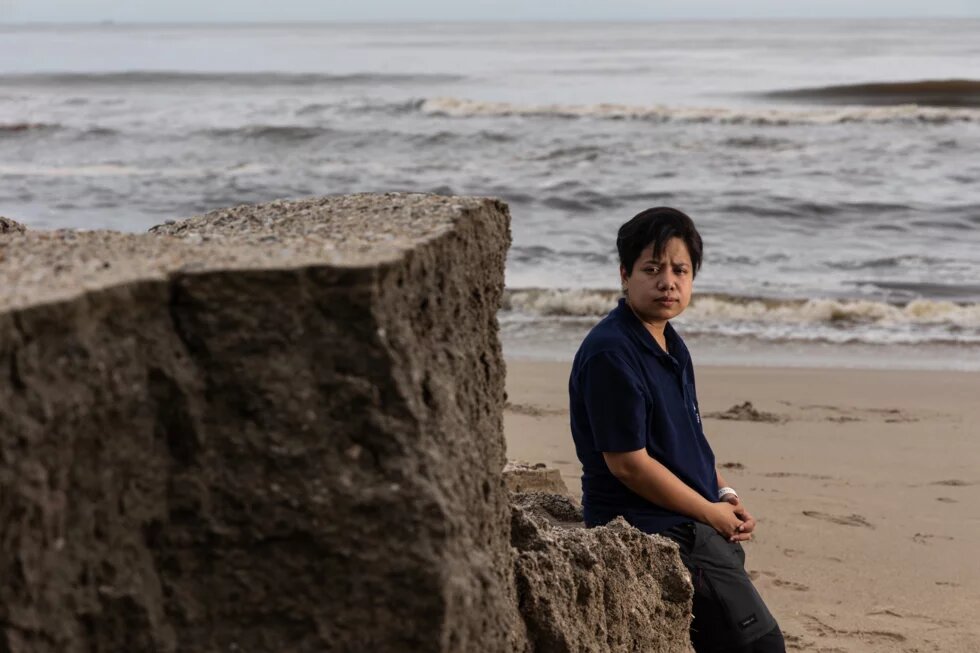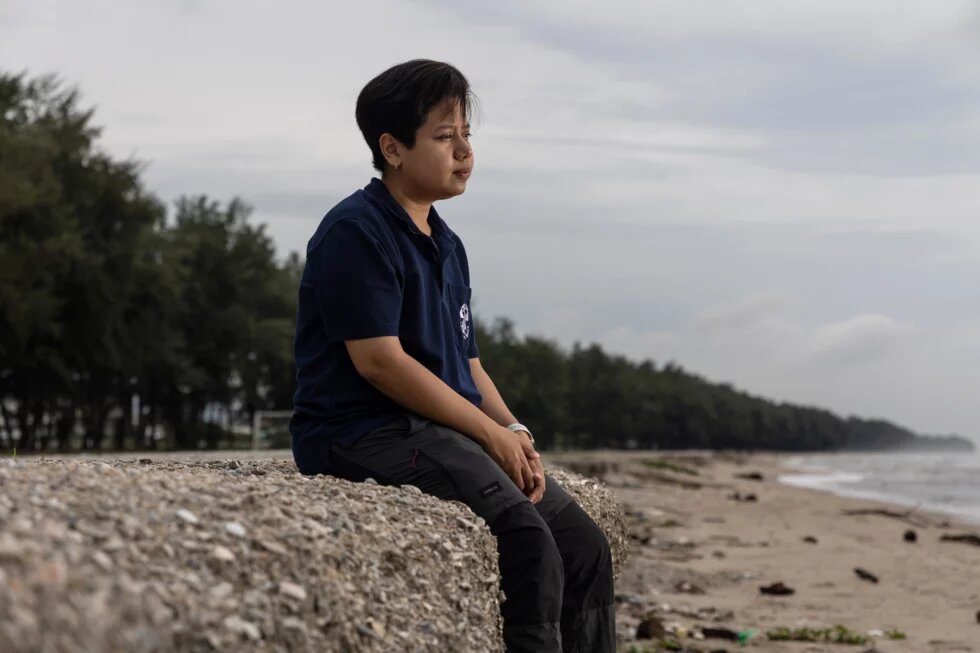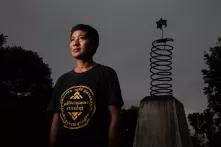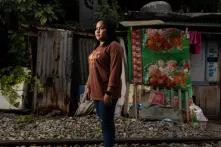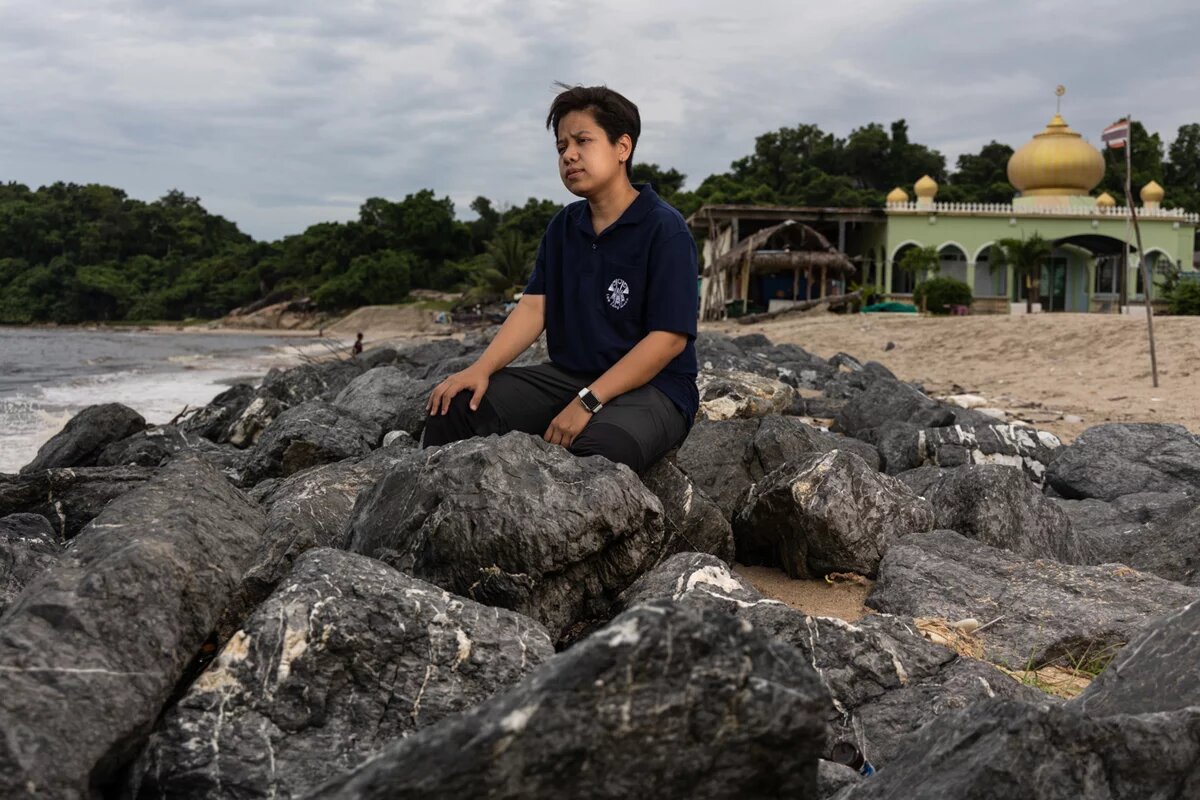
Alisa, who goes by the nickname Fon, went to a high school located right at the beach, prompting her to develop a deep interest in the coastal communities of her hometown. She then became inspired to pursue a career in law, hoping to bring the voices of local communities into the country's environmental laws and regulations. Today, the young activist is one of the pioneers of encouraging young people in Thailand's South to raise their voices for change. She became one of the few youth representatives in national politics dedicated to community struggles in the country’s coastal areas.
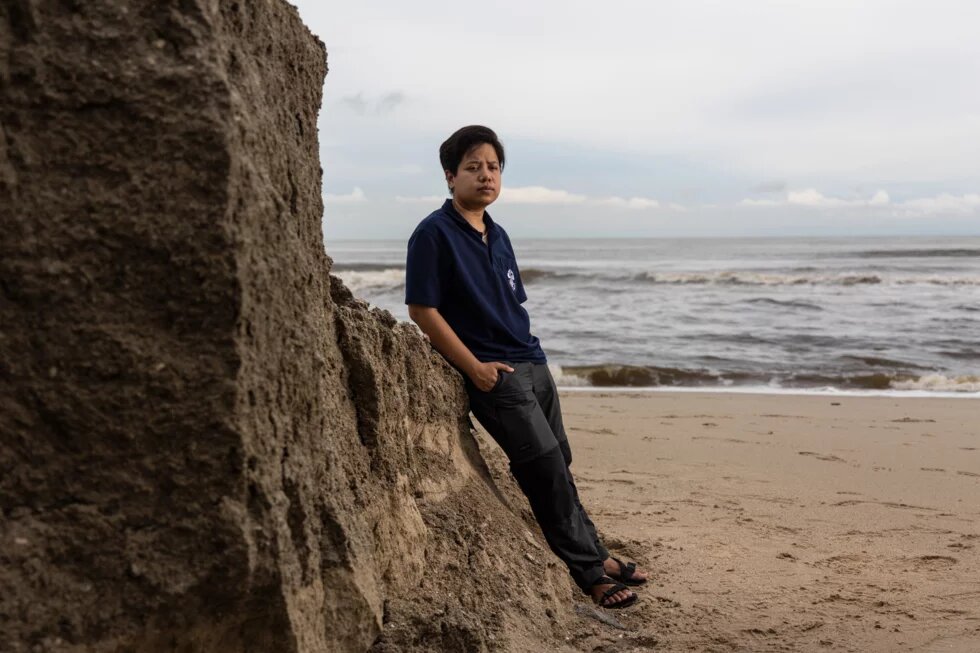
Along the white sand shore of Samila Beach at the Gulf of Thailand sat a group of friends on a bright Sunday. Alisa Bintuna, then an 18-year-old high schooler, scribbled down the thoughts tossed around the circle into her notebook. The group, Beach For Life, was condensing the input from over 20,000 local residents to write a charter that would outline their vision of the future for the very shore they sat on.
Samila Beach, the foreshore of Songkhla Province, along the eastern coast of the southern Thai peninsula, has been extensively developed for housing, tourism, and shrimp farming. However, the impact of shoreline erosion on local people's quality of life has been a growing concern for many.
Alisa, who goes by the nickname Fon, went to a high school located right at the beach, prompting her to develop a deep interest in the coastal communities of her hometown. She then became inspired to pursue a career in law, hoping to bring the voices of local communities into the country's environmental laws and regulations.
Today, the young activist is one of the pioneers of encouraging young people in Thailand's South to raise their voices for change. She became one of the few youth representatives in national politics dedicated to community struggles in the country’s coastal areas.
Law Long Beach beginnings
After high school, Alisa became more interested in law as an agent for change. She enrolled to study law at Prince of Songkla University in 2015, where she founded Law Long Beach, a club to study coastal law.
Although it was one of Alisa's passions, she soon realized that the activities were not engaging enough for her peers. Instead of studying from books, her peers wanted to visit local communities and do hands-on activities.
So in its second year, Law Long Beach evolved to work with local communities on rights and environmental law.
"Development, the environment, and law - it's all connected," Alisa says. "If we can't create change at the policy- and legal level, it's impossible to protect our natural resources."
Protecting the environment through informing local communities about their rights and offering them legal support is at the core of Alisa's work with Law Long Beach.
The organization has tackled various issues, ranging from the construction of breakwaters, the Thepa coal-fired power plant in Pattani province, and most recently, the planned Chana industrial estate in Songkhla.
In the case of the Chana industrial project, Alisa and her friends used their expertise in law to help untangle legal confusion within the affected community on land rights.
United in their passion for protecting and restoring the coast, the group has also represented coastal communities in court cases.
It also organizes activities to empower communities, inform them about their rights and encourage them to advocate for themselves.
"We run activities to make communities recognize their rights - there are many rights that come before suing, like the right to access information and news," Alisa says. "And then there is the right to argue and share their opinions. When there is a public forum, they know that they have a right to go in and debate and share their opinions."
Tide of Change - Moving into Politics
But as her time at university came to an end, Alisa realised that political participation was vital. Certain things were just not achievable at the local level. They needed to be addressed in national politics- in parliament.
It was the time after Thailand's latest military coup in 2014 that saw political freedoms stripped away and many were silenced by strict orders and regulations. One of them was the junta's order no.3/2015 that banned political gatherings of five or more persons.
"In 2015, there were many orders from the military junta that affected people working for the environment and for communities fighting to protect natural resources," Alisa recalls.
While working with Law Long Beach and focusing more on legal issues and community work, Alisa felt the limitations of being an environmental defender under an authoritarian regime.
"I started to see that resources were connected to the larger political picture of the country," she says. "And then my university friend invited me to join a new political party."
Future Forward Party, a political startup with a progressive platform, recruited members from activists and civil society circles, especially the young generation.
"I believe that everyone should be able to participate in politics and so I focused my work on the youth as aligned with the party's vision."
Recruiting the youth
Alisa had noticed the low number of youth representatives present at public forums on development projects like the Thepa coal power plant or the Chana industrial estate.
"I really wanted the youth to be more actively participating in these processes, so I went on to join the party," Alisa says.
She believes that the youth is key to the fight for social change and environmental justice "because it's an age where people will grow and move forward." At the same time, young people still "have time, energy, and most importantly, hope."
But at first, Alisa found it challenging to recruit young members for the new political party that was just starting to get its name out. "It was a time when people feared politics, those who joined were daring enough to take risks or had hope and wanted to see change," Alisa says.
Sor. Rattanamanee Polkla, a lawyer and executive coordinator at the Community Resource Centre Foundation, says Alisa was one of the few southern activists who succeeded in getting young people interested in social and community issues.
"Alisa has always had determination in a time when there were very few students interested in community issues," she says.
Driven by the lack of political parties representing the country's young generation, Alisa enjoyed working with the party even though it was seen as a political underdog.
"When [the party] was still less-known it was the most fun," Alisa says. "I could try out many new ideas, and it made me want to continue, because I believed that it was possible and that things could change."
To most observers' surprise, Future Forward Party, propelled by young voters, came out third in the 2019 election, winning 81 out of 500 seats in parliament. But less than a year later, in February 2020, the Constitutional Court ruled to dissolve the party over a violation of election laws regarding political party donations.
But the party got a second life under the banner of the Move Forward Party, continuing to campaign on the same political platform as the second-largest opposition party.
Reflections and Future
Now, seven years after the bright Sunday at Samila Beach, Alisa has spread her passion to an array of jobs. The 26-year-old works full-time as an area manager for Move Forward Party in charge of the southern provinces of Satun, Songkhla, Pattalung and Trang. She also volunteers at Law Long Beach, focusing on community issues, natural resources and human rights.
"What makes Alisa good at what she does is her determination and strong sense of purpose," said Sor at the Community Resource Foundation. "Since she was a student working with Law Long Beach and Beach for Life up to now, there's been a strong dedication in her focus on working on social issues."
Despite setbacks, including the prosecution of many leading activists of the country's young democracy movement, Alisa is determined to continue the fight for change. As a young human rights defender, she takes it upon herself to be the change she wants to see.
"As a young person, I didn't wait for anyone to become my representative, I went in and did it myself," Alisa says.
Her dream now is to push her vision of change further and create a youth-led organisation for the South.
"I want to create a space where people can come to learn more, connect and empower one another with the tools and knowledge on human rights and politics in Southern Thailand. That is my dream, a floating dream."
This piece was produced by HaRDstories with the support of the Global Support for Democracy Unit of the Heinrich-Böll-Stiftung European Union and is part of the dossier "Young voices on the rise. Youth & democracy in the Asia-Pacific region".. Edited by Fabian Drahmoune.
The article first appeared here: eu.boell.org
